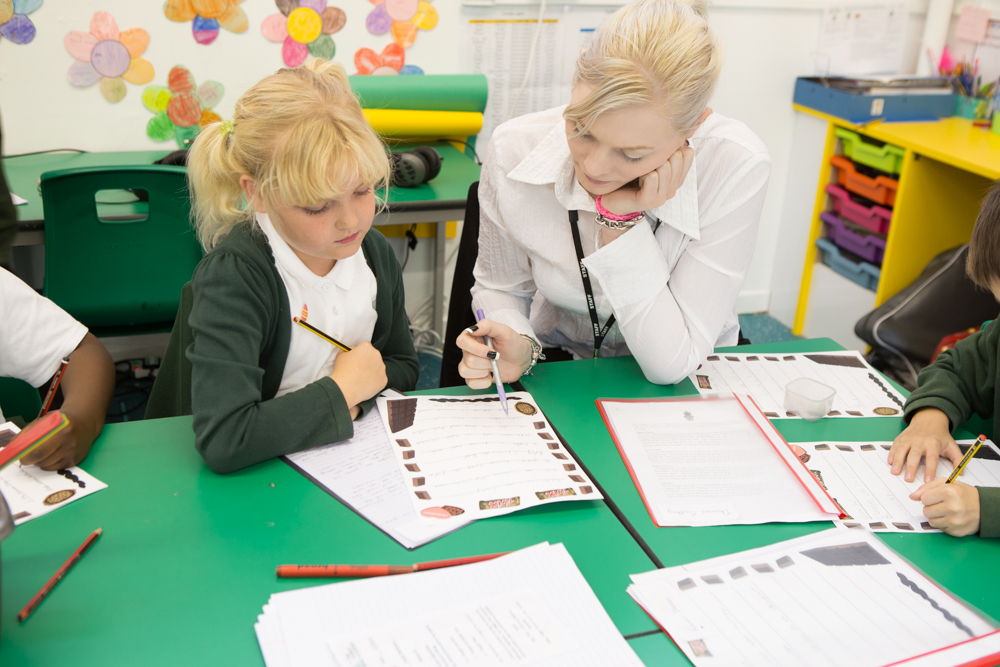By Mia Sneyd
Strong language skills are the foundation of effective communication, and mastering spelling, punctuation, and grammar is crucial for pupils to transition onto their next steps in education and beyond. The EEF outlined its recommendation for improving literacy, and in both the primary and secondary recommendations it states: “Teaching spelling, grammar and punctuation explicitly can improve students’ writing, particularly when focused on meaning”. Yet where pupils struggle to grasp SPaG, writing fluency and accuracy suffer. So, how can we embed SPaG teaching into our lessons?
Engaging Learning Activities for Primary Schools:
In primary , it’s essential to make learning language skills enjoyable and interactive. Utilise games, puzzles, and interactive activities that not only teach spelling, punctuation, and grammar rules but also encourage creativity. Spelling bees, word-building games, and storytelling sessions can ignite young minds while reinforcing language fundamentals.
Visual Aids and Mnemonics:
Primary pupils often benefit from visual aids and mnemonics. Incorporating colourful charts, posters, and mnemonic rhymes to help them remember spelling rules, punctuation marks, and grammatical concepts is useful. These visual aids create a memorable learning experience and serve as handy references in the classroom.
Personalised Feedback and Positive Reinforcement:
Provide personalised feedback on written work, highlighting areas for improvement in spelling, punctuation, and grammar. Positive reinforcement, such as praising correct usage or improvement, boosts pupils’ confidence and encourages them to actively participate in language-related activities. Be sure to check your school’s policy on feedback to check that your strategies are aligned with whole school approaches.
Interactive Digital Tools for Secondary Schools:
As students progress to secondary education, integrating technology becomes crucial. Digital tools like Grammarly, Hemingway Editor, and interactive grammar apps allow students to receive instant feedback on their writing, helping them refine their language skills independently.
Peer Review and Collaborative Learning:
Foster a culture of peer review and collaborative learning in upper secondary schools. Encourage students to exchange and critique each other’s written work. This not only sharpens their spelling, punctuation, and grammar skills but also promotes a collaborative approach to language improvement.
Incorporate Real-World Examples:
Relate language skills to real-world examples to show students the practical application of spelling, punctuation, and grammar. Analyse newspaper articles, blogs, or professional writing samples to demonstrate how effective language usage contributes to clear and impactful communication.
Grammar Workshops and Writing Clinics:
Conduct regular grammar workshops and writing clinics to address specific challenges pupils may face. These sessions can provide targeted support on common errors, allowing pupils to refine their skills.
By implementing a combination of engaging activities, visual aids, technology integration, collaborative learning, and real-world applications, we can create an environment that nurtures strong spelling, punctuation, and grammar skills. Investing in these language skills not only equips pupils for academic success but also prepares them for effective communication in their future lives. To master the language basics, we empower pupils to express themselves clearly and confidently, setting the stage for a lifetime of effective communication.













